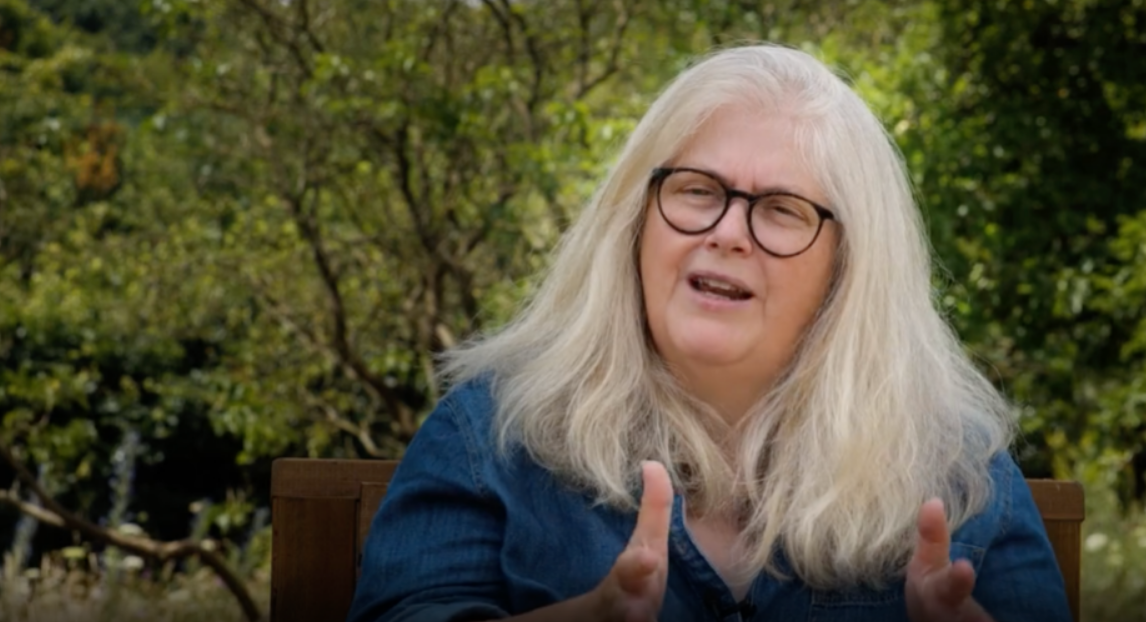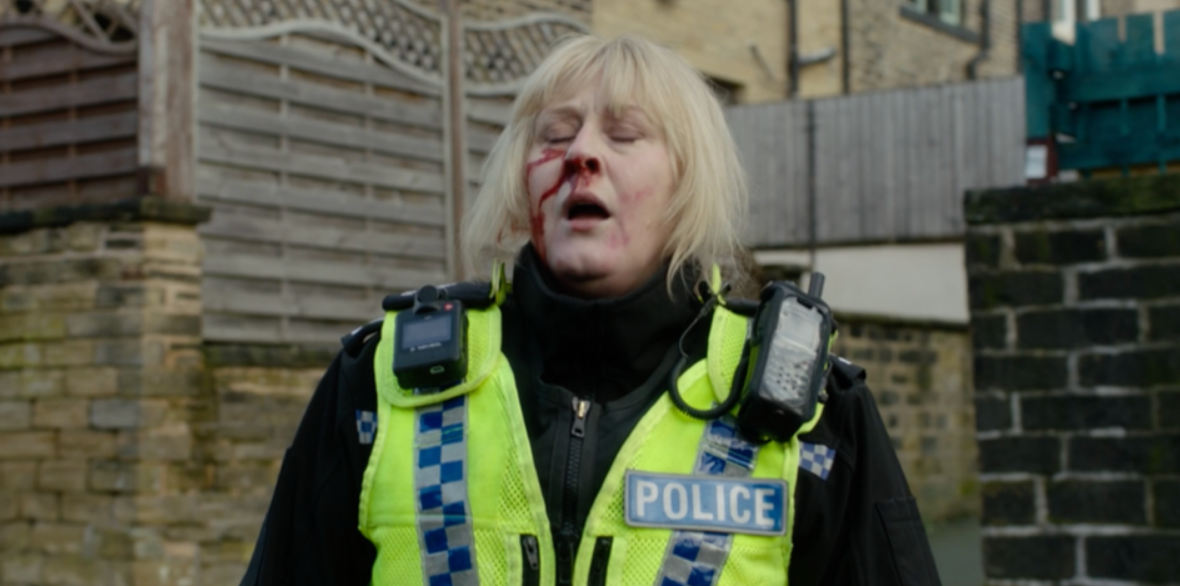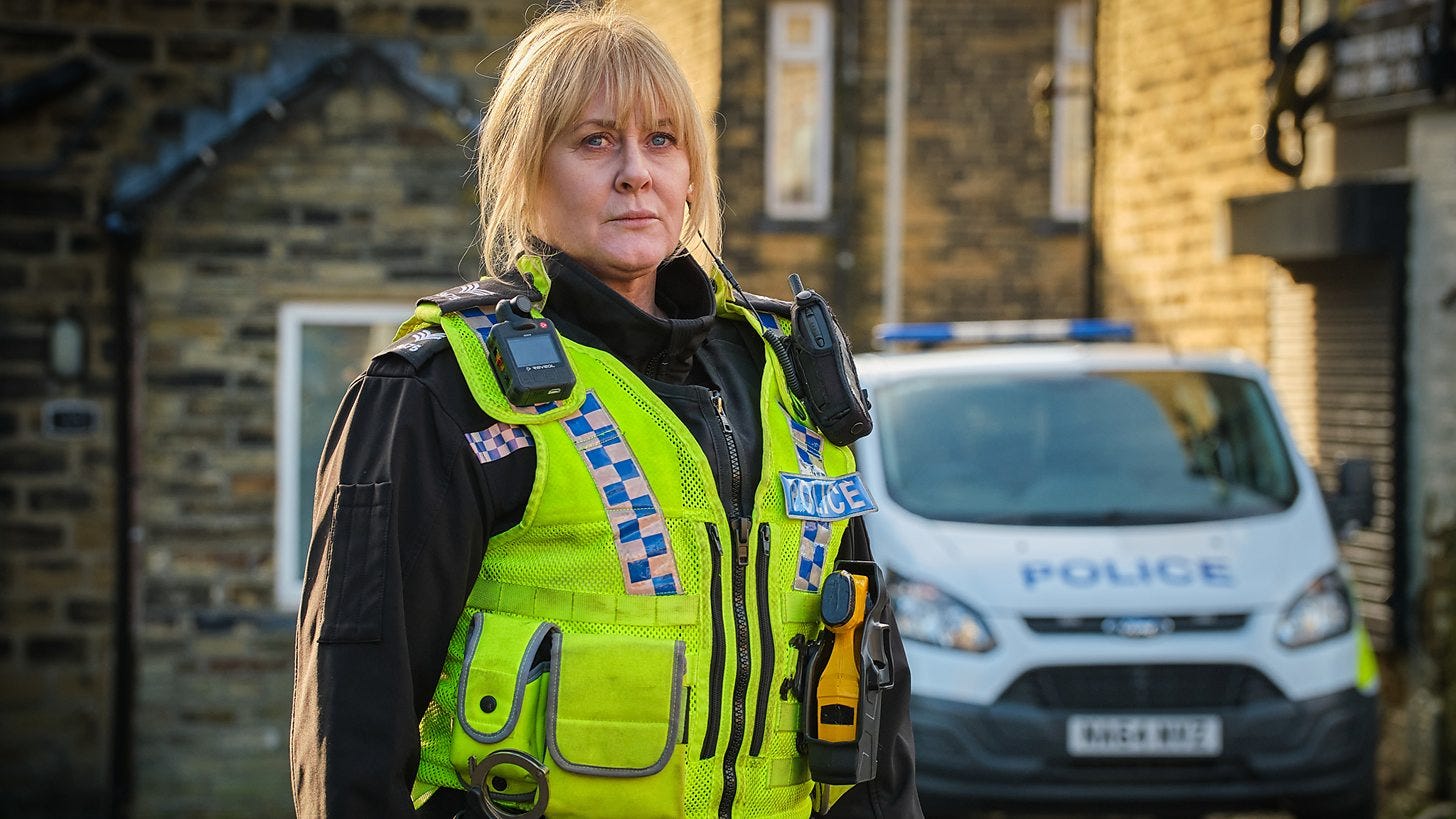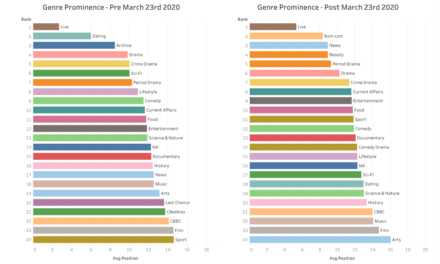“Chilling,” “a dark delight,” “magnificent,” “triumphant,” and “explosive” are all words that have been used to describe the British police crime thriller Happy Valley.[1] First screened in 2014, it reached an audience of over 8 million and became a hit with critics and the audience alike. The second series followed in 2016, growing its audience to over nine million, marking a record-high audience share with a third of viewers tuning in.[2] After a seven-year hiatus, the series returned with a bang on New Year’s Day 2023 and has been watched by over eleven million people. To grow an audience against a backdrop of broadcast channel ratings declining is a remarkable feat, but perhaps not surprising given it has been hailed by critics as one of the greatest television dramas of the twenty-first century,[3] Yorkshire’s version of The Wire [4] and “the ultimate event TV.”[5]
Happy Valley follows the story of police Sergeant Catherine Cawood as she navigates through personal and professional challenges and struggles to protect her community and grandson Ryan from her nemesis, Tommy Lee Royce, Ryan’s father and a violent rapist, murderer and psychopath, who is responsible for her daughter’s suicide. The series expertly weaves together intricate plotlines, compelling characters, and outstanding performances, earning five BAFTA awards and sustaining viewer investment and engagement over the course of eighteen episodes spanning nine years.
Two middle-aged women are of prime importance to its success; on-screen, Sarah Lancashire plays the lead, Sergeant Cawood and behind-the-camera, creator, writer, director, and executive producer Sally Wainwright. It should be irrelevant that these two brilliant women are in their fifties, yet TV drama is the domain of men. Television’s lack of diversity is well known.[6] For this reflection, I will focus on the persistent pattern of gendered ageism that permeates the industry. Women over 40 are invisible from our television screens or relegated to minor roles and portrayed as unattractive and weak. The percentage of leading female characters drops from 42% in their 30s to only 15% in their 40s. This underrepresentation of older women perpetuates harmful stereotypes that women of a certain age are obsolete when they are deemed too old to serve as a love interest or mother.[7]

Fig. 2: Sally Wainwright, Writer, Director and Executive Producer of Happy Valley. BBC/Lookout Point/AMC in Happy Valley: Bringing Back a Global Hit
Behind the scenes, the industry can similarly be an unwelcoming environment, with an exodus of female workers aged over 35, pushed out by the culture of long working hours, stressful conditions, casual hiring practices and lack of family-friendly policies.[8] Industry roles are also highly gendered, and while women represent just under half of all UK television workers, they are more likely to be in administrative roles such as production secretaries, heads of production and commissioning editors and less likely to be found in key creative roles such as writing, directing and producing.[9] Wainwright is acutely aware of the lack of opportunities for women writers and directors on primetime British television and has been vocal about the challenges she faced as a female writer trying to break into a male-dominated field. In an interview with The Big Issue in 2020, Wainwright referred to her early experiences of being one of a handful of women in the writer’s room as “a misogynistic bloodbath.”
According to 2022 research by the Writers Guild of Great Britain, just 28% of UK television episodes are written by women, dropping to 14% of primetime programming.[10] Previously, a 2018 Directors UK report found women directed only 25% of British television episodes and 17% of drama and comedy programmes.[11] Despite various initiatives, little progress has been made, with the latest data from the Creative Diversity Network showing that women still account for only 26% of directors and 33.4% of writers.[12] More needs to be done, and Wainwright has noted it is not sufficient to reel off the same initiatives; more women need to be trusted to tell their stories and provided with an equal opportunity to succeed in the industry:
We are living in what is regarded as a golden age of television, but the overwhelming mass of content is male-orientated. It is still rare to find good series about women. We know what they are – Unbelievable on Netflix, things like The Marvellous Mrs Maisel and hopefully Happy Valley and Gentleman Jack. But you can’t just turn on the TV and know you will find something that isn’t about men and guns and power.[13]
Whilst there is a tradition of female detectives within British television, from Juliet Bravo to Prime Suspect, Sergeant Cawood has been referred to as one of the best characters in television’s history. Lancashire’s performance has been widely praised for its sensitivity and emotional depth; Cawood is complex, nuanced and has been revered for helping to challenge stereotypes about middle-aged women on screen. Wainwright has said “It is always a shock to me to realise what I write is unusual because I put women at the forefront.”[14] She wrote the character of Catherine Cawood for Lancashire, having worked together on Last Tango in Halifax, and has spoken about their connection as women of a similar age from the North.

Fig. 3: Sarah Lancashire as Catherine Cawood. BBC/Lookout Point/AMC in Series 3 finale trailer: Happy Valley
Happy Valley serves as an outstanding example of how women can make an impact both on and off screen, presenting a unique perspective on the female experience and showcasing older women who are often marginalized. The outstanding results of Wainwright and Lancashire’s collaboration shows how vital it is for the future of the industry to support more creators from diverse backgrounds. Happy Valley embraces the complexity of middle-aged women, offering a nuanced and authentic portrayal of Cawood that is both refreshing, necessary and provides a much-needed counterbalance to the entertainment industry’s youth-obsessed culture.
The success of Happy Valley as a television drama has demonstrated the audience’s appetite for original stories that challenge their expectations and broaden their perspectives. It offers hope that the industry is beginning to shift away from outdated sexist and ageist stereotypes, allowing audiences to benefit from a plethora of diverse stories that reflect women at all stages of their lives. The final episode of series three provides a longed-for happy ending for Cawood, and we must take up the fight to ensure women working on both sides of the lens can have their own. This requires taking action to challenge and dismantle biases and power structures, provide support to those who are marginalized, and invest in diverse storytelling to create a truly inclusive future for the television industry.
Lucy Brown is an award-winning practitioner, educator and Professor at the University of Westminster. She has worked for the BBC, ITV, Channel 4, Nickelodeon, and Disney, with multiple BAFTA and RTS credits to her name. Brown is a Senior Fellow of the Higher Education Academy and an Executive Board member of the National Association for Higher Education in the Moving Image. She is the Founder of Women in Screen and the Trailblazing Women On and Off Screen conference and sits on the Editorial Board for Representology, The Journal of Media and Diversity. Brown has also co-authored the influential text The TV Studio Production Handbook.
Footnotes
[1] Happy Valley, three seasons, created by Sally Wainwright, Red Production Company (series 1-2) Lookout Point (series 3), for BBC1, 2014 – 2023.
[2] Peter White, “Happy Valley Arrests Biggest Ever Performance,” Broadcast, 10 February 2016, https://broadcastnow.co.uk/happy-valley-arrests-biggest-ever-performance/5100087.article
[3] BBC Culture, “The 100 Greatest TV Series of the 21st Century,” BBC Culture, February 24, 2022, https://bbc.com/culture/article/20211015-the-100-greatest-tv-series-of-the-21st-century
[4] The Wire, five seasons, created by David Simon, Blown Deadline Productions for HBO, 2002-2008.
[5] Charlotte Moore, BBC’s Chief Content Officer quoted “Over 11 Million Viewers Gripped by the Final Series of the BBC’s Happy Valley,” Media Centre, n.d., https://bbc.co.uk/mediacentre/2023/happy-valley-series-3-ratings
[6] Lucy Brown, Rosamund Davies, and Funke Oyebanjo, “Recognising and Addressing Unconscious Bias and Structural Inequalities,” Alphaville, no. 24 (December 20, 2022): 97–117, cstonline.netdoi.org/10.33178/alpha.24.06 and Sam Friedman and Daniel Laurison, The Class Ceiling: Why It Pays to Be Privileged (Policy Press, 2020)
[7] Martha M. Lauzen, “Boxed In: Women On Screen and Behind the Scenes on Broadcast and Streaming Television in 2021-22,” San Diego State University Center for the Study of Women in Film and Television, 2022, https://womenintvfilm.sdsu.edu/research/ and Geena Davis Institute on Gender in Media, “Women Over 50: The Right to Be Seen on Screen,” November 13, 2021, https://seejane.org/research-informs-empowers/women-over-50-repor
[8] Tamsyn Dent and Mounira Almenoar (2019). “We Need to Talk About Caring,” Raising Films. June 2019. https://raisingfilms.com/wp-content/uploads/2019/06/
[9] Alison Peirse, “The Hidden Work of Women: Commissioning and Development in British Television Drama,” Feminist Media Studies, January 31, 2022, 1–15, https://doi.org/10.1080/14680777.2022.2027804
[10] Writers’ Guild of Great Britain, “Equality Writes – Writers’ Guild of Great Britain,” June 27, 2022, https://writersguild.org.uk/equalitywrites/
[11] “Directors UK – Campaigns – Gender Equality in UK TV Production,” August 2018, https://directors.uk.com/campaigns/gender-equality-in-uk-tv
[12] “The Fifth Cut: Diamond at 5,” Creative Diversity Network, 2022, https://creativediversitynetwork.com/diamond/diamond-reports
[13] Adrian Lobb, “Sally Wainwright: “My Younger Self Willed Being a Top Writer into Happening”,” The Big Issue, February 21, 2020, https://bigissue.com/culture/tv/sally-wainwright-my-younger-self-willed-being-a-top-writer-into-happening
[14] Adrian Lobb, “Sally Wainwright: “My Younger Self Willed Being a Top Writer into Happening”,” The Big Issue, February 21, 2020, https://bigissue.com/culture/tv/sally-wainwright-my-younger-self-willed-being-a-top-writer-into-happening





